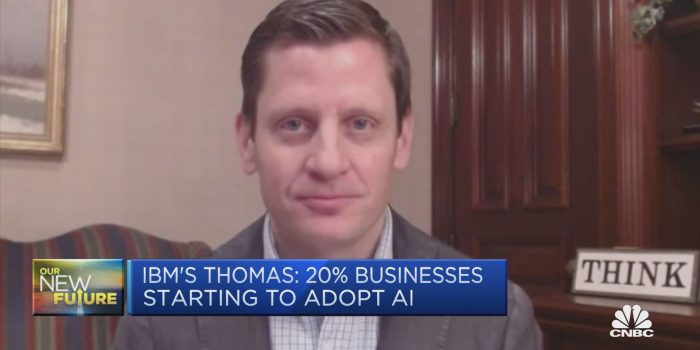In a recent report, tech behemoth IBM unveiled a perspective that offers a sigh of relief amidst the ongoing debate about artificial intelligence (AI) and its impact on employment. Contrary to dystopian predictions of AI-driven mass unemployment, IBM asserts that it’s not AI replacing employees, but rather people who embrace AI replacing those who resist it.
The widespread adoption of AI in businesses is rapidly reshaping traditional work dynamics. Rather than displacing human workers, AI is being utilized to streamline processes and enhance productivity, allowing employees to shift their focus towards tasks that demand their unique skills and creativity. The fundamental premise here is that AI executes what it’s trained for – its actions are confined within the parameters of human guidance.
According to insights garnered from conversations with industry executives, IBM foresees that around 40 percent of the global workforce will need to enhance their skill sets over the next three years to align with AI integration. This shift implies that approximately 1.4 billion out of the 3.4 billion global workforce could experience some level of transformation. To cater to this impending need, renowned educational institutions like the University of Cambridge and the University of Edinburgh have launched programs aimed at addressing AI ethics and promoting responsible AI use.

The journey towards AI competency isn’t limited to tech-oriented professionals alone. The trend extends across sectors like retail, education, and financial services, as evidenced by LinkedIn’s Future of Work Report. The report indicates that non-tech professionals are actively acquiring AI skills, with the highest adoption rates being observed in Singapore, followed by Finland, Ireland, India, and Canada.
Interestingly, IBM’s report also highlights a shift in job requirements. While STEM skills remain vital, they are gradually becoming baseline qualifications for various roles. In contrast, managerial positions are expected to emphasize soft skills like interpersonal communication, time management, and collaboration.

IBM’s perspective aligns with the views of the majority of executives it engaged with. Around 87 percent of these executives expressed that AI would serve to augment human roles rather than replace them. While lower-level employees might experience significant changes, entry-level positions are likely to bear the brunt of the transformation.
This reassuring insight from IBM comes in the wake of its CEO, Arvind Krishna’s, statement about AI’s impact on their workforce. Krishna suggested that a substantial portion of IBM’s employee base could be replaced by AI and automation over a five-year span. The key takeaway for companies lies in leveraging AI to empower human endeavours, ensuring that the technology bolsters human potential rather than curtails it. As the AI revolution continues, those who willingly adapt stand poised to shape the future of work.


